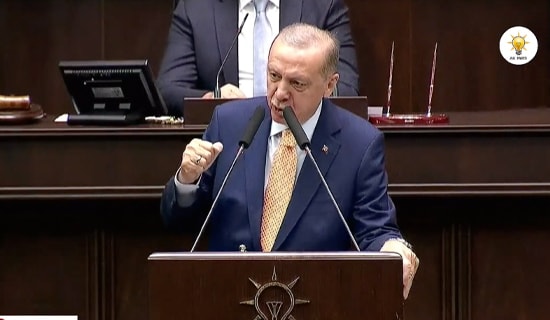The following are excerpts from an interview with Mohammad Ghannadi Maragheh, Research and Technology Deputy, Iranian Atomic Energy Organization, which aired on Channel 2, Iranian TV on August 26, 2006.
TO VIEW THIS CLIP, VISIT: http://memritv.org/clip/en/1258.htm
Interviewer: "I wanted to know what is the link between the Arak heavy-water reactor and what we now have at Natanz. Or perhaps these are two separate processes?"
Mohammad Ghannadi Maragheh: "Obviously, these are two completely separate processes. What happens in the enrichment process is intended primarily for light-water power plants, and for light-water research reactors. What we have in Arak is heavy water, which is used for heavy-water reactors and CANDU reactors. Since our future plans do not include the production of plutonium. In fact, we have no plans to separate uranium and plutonium for the purpose of fission. We are interested only in the radio-isotopes. We don't care which project will be the first to yield results - whether it is a heavy-water or light-water reactor. Canada has many heavy-water reactors. India has many heavy-water reactors - heavy-water research reactors. One country uses them to produce radio-isotopes, while the other uses them to produce weapons. It's up to the country."
Interviewer: "Does plutonium separation require a different technology? A complementary technology?"
Mohammad Ghannadi Maragheh: "Yes. As I told you, when uranium fission occurs, plutonium and other fission materials are formed next to it, right? The important point is that if any country wants to use the plutonium, it needs a very complex technology in order to reprocess the nuclear reactor fuel. This is not in our plans at the moment. As a matter of fact, we... If any country wants to use its plutonium - whether for weapons or for the production of energy - it must have a reprocessing plan to separate these three materials. This is a very complex technology. Since we want to use our reactor solely for the production of radio-medicine and radio-isotopes, we will not reprocess the fuel we use in it. Even if we wanted to do such a thing in the Bushehr nuclear power plant, the spent fuel is supposed to be returned to the country of origin [i.e. Russia]."
[...]
"A country that pursues the production of radio-medicine and radio-isotopes can use any kind of reactor, whether heavy-water or light-water."
Interviewer: "We are supposed to produce nuclear fuel as well, right? We say we want to supply the fuel to the Bushehr power plant, and to other power plants that we want to build. Right? Does this mean we must also have the complementary procedure of reprocessing?"
SUPPORT OUR WORK

Mohammad Ghannadi Maragheh: "No, there is no need for it. In the program of the Islamic Republic of Iran, energy production... Many countries do not reprocess [the fuel] Germany, for example..."
Interviewer: "So how do they supply their own fuel?"
Mohammad Ghannadi Maragheh: "It's not a problem. They use uranium ore, not processed uranium. Some countries, such as China, Russia, France, and England, use processed uranium and plutonium - especially France. But our country will not do so. It will use only uranium ore. Many countries do this - Germany, Sweden, and America."
Interviewer: "There is no reprocessing at Natanz?"
Mohammad Ghannadi Maragheh: "No. Only [uranium] 235 separation is conducted at Natanz."
Interviewer: "In other words, enrichment..."
Mohammad Ghannadi Maragheh: "Enrichment is one matter, and the reprocessing of spent fuel is another. These two processes are separate. In enrichment, uranium 235 isotopes are separated. As for the process, much has been said about it - about the centrifuges, the way they operate, and their mechanism..."
Interviewer: "We have the well-known footage, from when the Islamic Republic of Iran reached 3.5% enrichment, and there is a picture of you..."
Mohammad Ghannadi Maragheh: "...The Yellow Cake.
"I was at UCF at the time. They took my picture. They did me a favor and included me. I wasn't there. Everybody else was..."
Interviewer: "One Ghannad ['baker'] bakes cakes, while you make Yellow Cake."
Mohammad Ghannadi Maragheh: "Yes, one is sweet and the other isn't but both have energy."
[...]
Interviewer: "So on what do they base their claims that Iran is moving towards making bombs?"
Mohammad Ghannadi Maragheh: "They say we can produce the raw materials [for bombs]."
Interviewer: "So they are saying we can begin reprocessing..."
Mohammad Ghannadi Maragheh: "We are not going into the reprocessing, but they say that if we produce plutonium, the construction of the [reprocessing] facilities would not be so complex, and that we have the capability of doing it. The important thing is that the plutonium produced in research reactors is purer."




